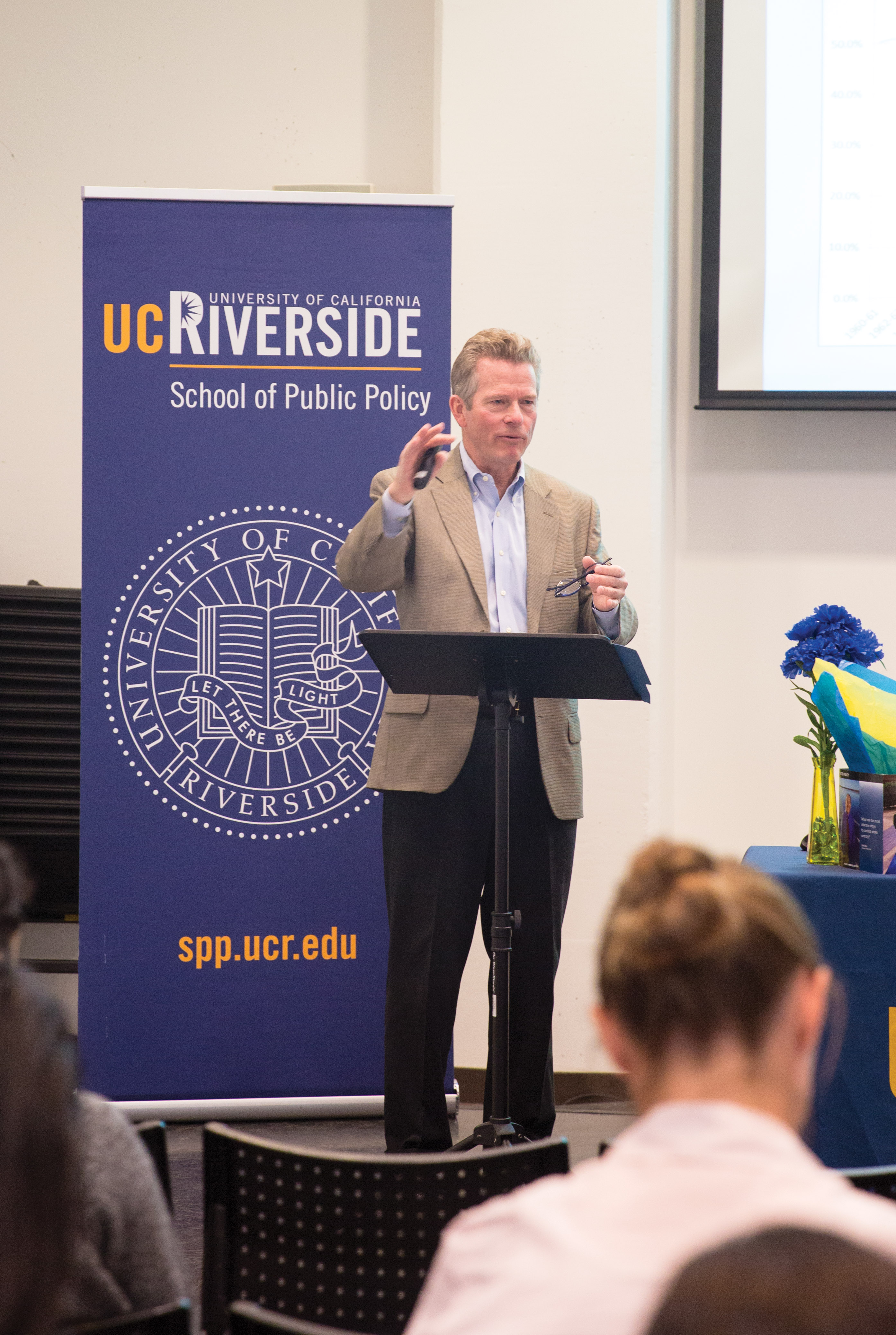
Public policy is constantly being updated, changed and reformed to reflect current economic and social trends, however, California’s current state and local tax policy remains exactly the same as when it was established 80 years ago. Mark Ibele, staff director of the committee on budget and fiscal review for the California State Senate, visited UCR in INTS 1109 on Thursday, Feb. 2 to discuss issues with California’s tax policy involving the volatility of General Fund (GF) revenues, heavy reliance on high-income earners and the various tax income shifts, as well as possible tax reform measures to address these problems.
California’s GF creates revenue to finance public services through several elements: The personal income tax (PIT), sales and use tax (SUT) and corporation tax (CT). Through this system, revenue is maintained by taxpayers from all levels of income, however, it does not reflect the changes in modern economy or provide solutions to the fact that California’s tax revenues have become more volatile than the economy. Ibele mentioned that this fluctuation can be isolated to the fact that PIT is 71 percent of the total GF budget, making PIT and GF revenues highly correlated and sensitive to changes in economic situations, as seen in the economic crises of 2000 and 2008, when a drop in personal income caused the GF revenue to drop exponentially.
This volatility indicates another problem: GF has become too reliant on PIT and the top income earners, with 80 percent of personal income tax being paid to the state by the top 10 percent of taxpayers in 2012. “In 2014, there were only 7,429 taxpayers who paid $14.7 billion in personal income taxes,” stated Ibele when explaining how income is concentrated among high-income taxpayers.
Another area that Ibele felt could be reformed was the tax income shift in PIT and SUT, because since 1950 there has been a major decline in SUT revenue and an increase in PIT revenue. “This shift had a lot to do with external conditions, social changes and the state’s response to those changes,” explained Ibele. These changes include California’s shift from a consumer economy to a service economy and how the SUT, which, according to Ibele, is “levied on tangible personal property (…) property you can touch, feel, experience,” has decreased dramatically. Ibele stated that an almost monotonic decline in SUT had occurred “from 1950-1951, about two-thirds of the GF was SUT versus in 2016-2017, about 20 percent.” People are no longer consuming products as they once were due to the advancement and accessibility of technology.
Ibele proposed a number of possible tax reform measures to improve the tax system and their potential downfalls. In terms of reforming PIT, Ibele said that it would require “shifting the tax rates of higher income earners to a lower percentage and middle income earners to a higher percentage.” Another option of reform would be that of the SUT, for which he proposed “expanding it to certain types of personal services, such as in the fields of accounting, architecture and consulting, but excluding healthcare and education services,” which Ibele noted “would allow for a reduction in PIT rates. Expanding the base of sales tax to include these other services would likely mean that middle income earners would be paying more tax because they consume more.” Ibele also recommends including property tax into GF policy due to its dramatic growth in the past 50 years.
UCR third-year public policy student Chantelle Godinez, stated, “Our generation, specifically, will be the one to be impact future tax reforms because, people like Mark Ibele, will not be in congress in 12 years. The people trying to change policy will be our generation soon. But until there is a call to action, such as if other corporations start following Wal-Mart’s move to transfer their revenue to other states, reforms will be hard to address and implement due to the vast amount of effort and energy required to do so.”
The next event hosted by UCR’s School of Public Policy is titled “Blum & Presley Center Symposium: Homelessness, Crime, and Public Policy” and will take place at the UCR Alumni Center on Thursday, Feb. 9 from 12 to 5 p.m.








